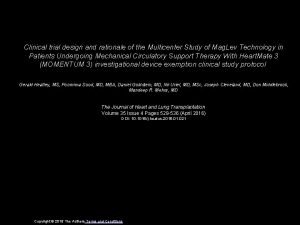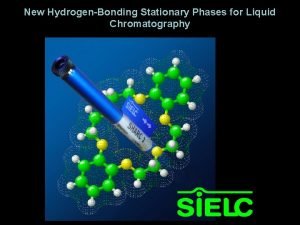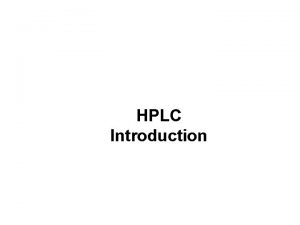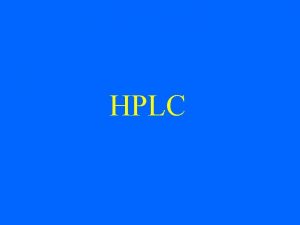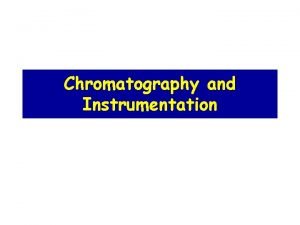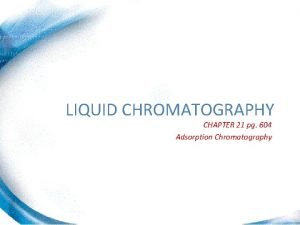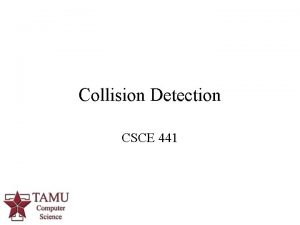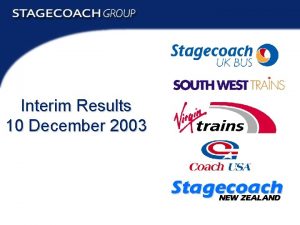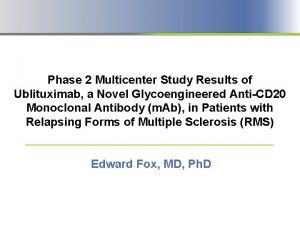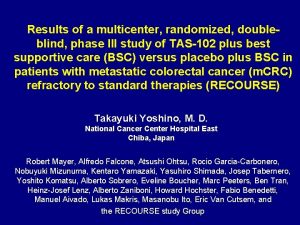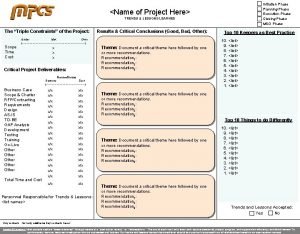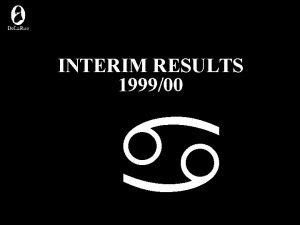Interim Results of an International Multicenter Phase 2










- Slides: 10

Interim Results of an International, Multicenter, Phase 2 Study of Bruton’s Tyrosine Kinase (BTK) Inhibitor, Ibrutinib (PCI-32765), in Relapsed or Refractory Mantle Cell Lymphoma (MCL): Durable Efficacy and Tolerability with Longer Follow. Up Wang M et al. Proc ASH 2012; Abstract 904.

Background l Ibrutinib is an orally available BTK inhibitor that induces apoptosis and inhibits cellular migration and adhesion in malignant B cells. l Preliminary results from the Phase II PCYC-1104 -CA trial demonstrated that ibrutinib produced rapid nodal responses, including complete responses, in patients with relapsed or refractory MCL (Proc ASH 2011; Abstract 442). l Treatment with ibrutinib was also associated with the inhibition of MCL cell chemotaxis and adherence (Proc ASH 2011; Abstract 954). l Study objective: To provide updated PCYC-1104 -CA interim analysis results of the efficacy and safety of single-agent ibrutinib in previously treated MCL. Wang M et al. Proc ASH 2012; Abstract 904.

PCYC-1104 -CA: Phase II Trial Design Eligibility (n = 115) Relapsed/refractory MCL 1 -5 prior lines of therapy No significant cardiovascular disease or disease affecting gastrointestinal function Bortezomib (BTZ)-naïve cohort (n = 65) Ibrutinib 560 mg/d PO 28 -d cycle until PD BTZ-exposed cohort* (n = 50) Ibrutinib 560 mg/d PO 28 -d cycle until PD * ≥ 2 cycles Wang M et al. Proc ASH 2012; Abstract 904.

Best Response Percent of patients (%) 100 CR PR 80 65% 72% 68% 60 40 44% 49% 46% 20 0 21% 23% Bortezomibnaïve (n = 63) Bortezomibexposed (n = 47) 22% Total (n = 110) Efficacy population, n = 110. Median follow-up: 9. 2 mo With permission from Wang M et al. Proc ASH 2012; Abstract 904.

Time to Response (Phenomenon of Incremental Response) Bortezomib naïve (n = 63) Bortezomib exposed (n = 47) Total (n = 110) 37 1. 9 mo 1. 4 -8. 1 mo 31 1. 8 mo 1. 5 -9. 1 mo 68 1. 9 mo 1. 4 -9. 1 mo 13 11 24 Median 5. 6 mo 3. 9 mo 5. 5 mo Range 1. 7 -16. 4 mo 1. 7 -11. 0 mo 1. 7 -16. 4 mo Response Time to PR N Median Range Time to CR N PR = partial response; CR = complete response Wang M et al. Proc ASH 2012; Abstract 904.

Progression-Free Survival (PFS)and Duration of Response (DOR) DOR Probability PFS Responder All Treated Months in study All Treated Population Median PFS (CI 95%) months 111 13. 9 (6. 64, NR) + Censored Months in study All Responded Population Median DOR (CI 95%) months With permission from Wang M et al. Proc ASH 2012; Abstract 904. 75 NR (NR, NR)

Case Report: Response After 2 Cycles of Ibrutinib Patient #15 4/28/11 subcarinal LAD: 83 x 54 mm 7/15/11 subcarinal LAD: 21 x 13 mm With permission from Wang M et al. Proc ASH 2012; Abstract 904.

Adverse Events (AEs) in >10% of Patients Regardless of Cause Hematogenous AE: Neutropenia Thrombocytopenia Anaemia Non-Hematogenous AE: Diarrhea Fatigue Nausea Upper respiratory tract infection Dyspnoea Oedema peripheral Rash Constipation Vomiting Decreased appetite Confusion Abdominal pain Cough Dizziness Myalgia Pyrexia Hyperuricaemia Mucosal inflammation Sinusitis Urinary tract infection Grade 1 Grade 2 Grade 3 Grade 4 Grade 5 0% 10% 20% 30% 40% 50% 60% With permission from Wang M et al. Proc ASH 2012; Abstract 904. 70% 80% 90% 100%

Author Conclusions l Ibrutinib demonstrated an unprecedented single-agent overall response rate and a high complete response rate in relapsed/refractory MCL. l Responses were durable: Median duration of response not reached, median PFS 13. 9 months. l Response improved with longer follow-up with the phenomenon of “incremental response. ” l Ibrutinib has a favorable safety profile and is well tolerated. The treatment-emergent AEs were consistent with safety data previously reported. l Additional studies have been initiated in multiple clinical settings in MCL. Wang M et al. Proc ASH 2012; Abstract 904.

Investigator Commentary: Interim Results of a Phase II Study of Ibrutinib in Relapsed or Refractory MCL This is a report of the results from a multicenter, Phase II study of singleagent ibrutinib for 115 patients with relapsed/refractory MCL. Similar to the data presented in chronic lymphocytic leukemia (CLL) and small lymphocytic lymphoma (SLL), ibrutinib produced fantastic responses in MCL. In this cohort of patients with MCL, the ORR was about 70%, and the durability of response was impressive. At 12 months, about 60% of patients were still experiencing disease remission. In my opinion, the PFS curves across different disease histologies are interesting. The responses to ibrutinib appear to be most durable in CLL/SLL, with the PFS curves holding near the top. In MCL, however, the responses seem to be dropping off somewhat faster. Nonetheless, response to ibrutinib is impressive in MCL. I believe ibrutinib therapy yields better results in comparison to PI 3 -kinase inhibitors in MCL in terms of response rates and duration of response. Based on this study, it is fair to say that ibrutinib is an extremely impressive drug. Right now, bortezomib is the only agent approved for relapsed disease. About 7 years ago, we thought that the discovery of bortezomib was a tremendous breakthrough. Looking at ibrutinib today, it appears to be twice as effective as bortezomib in this patient population. Interview with Brad S Kahl, MD, January 17, 2013
 Multicenter study design
Multicenter study design Normal phase vs reverse phase chromatography
Normal phase vs reverse phase chromatography Hplc reverse phase vs normal phase
Hplc reverse phase vs normal phase Mobile phase and stationary phase
Mobile phase and stationary phase Stationary phase and mobile phase in hplc
Stationary phase and mobile phase in hplc Normal phase vs reverse phase chromatography
Normal phase vs reverse phase chromatography Difference between phase voltage and line voltage
Difference between phase voltage and line voltage Chromatography mobile phase and stationary phase
Chromatography mobile phase and stationary phase In a triangle connected source feeding a y connected load
In a triangle connected source feeding a y connected load Csce 441
Csce 441 Mhp redstone army
Mhp redstone army
